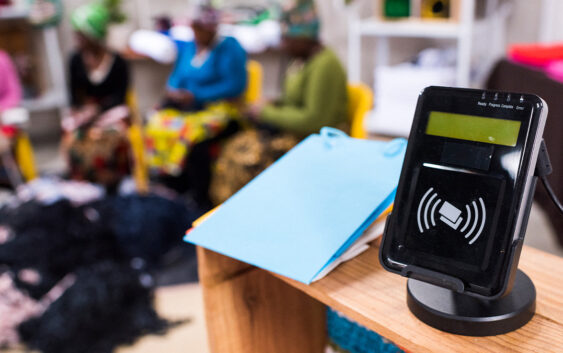- SCZONE SIGNED DEAL WITH CHINESE INVESTORS FOR IRON PRODUCTS PROJECTS IN EGYPT
- WESTPROP HOLDING LIMITED SET TO EMBARKED ON PIPELINE PROJECT IN ZIMBABWE
- FORMER TOGO PLAYER ADEBAYOR LAUNCH SOCIAL HOUSING PROJECT IN TOGO
- AMANSIE WEST DISTRICT ROAD PROJECT BEGINS IN GHANA
- LAGOS TO CALABAR HIGWAY PROJECT: WHY IT CANT BE ACHIEVED
AFRICA BUSINESS GROWTH: HOW DIGITALIZATION IS IMPORTANT

There is strong potential for robust, sustained, and inclusive economic growth in Africa, and it is being fuelled by the accelerated adoption of digitalization. As Africa continues its transition to a digital economy, new technologies are positively disrupting sectors such as agriculture, manufacturing, financial services, urban development, transport, and logistics, resulting in the creation of new products, services, and jobs. The continent is also starting to see an increase in investment, the opening up of new markets, improved efficiencies — particularly within the supply chain — and cost savings across businesses.
The benefits of digitalization
Digital innovation has given rise to new goods and services, created opportunities for new business models and markets, and can drive efficiencies in both the public and private sectors. Digitalization is an enabler of e-commerce and provides many benefits to small and medium-sized enterprises (SMEs) and can help them integrate more easily into global markets. It can contribute to the convergence of e-payment platforms, reduce transaction costs by providing quicker access to information, enable better tracking and management of logistics, and can provide advanced warning of potential delays or other issues to traders. It can also facilitate access to resources such as finance through peer-to-peer lending, and training.
Digital platforms — and the increased ease they provided — have played a large role in the burgeoning entrepreneurial and SME sectors on the continent. These platforms have made it faster, easier, and cheaper to get a business off the ground. Once these businesses were established, digital platforms and logistics technologies helped them to reduce search costs by facilitating the matching between buyers and sellers, while robotics, artificial intelligence, and the Internet of Things (IoT) applications helped to reduce shipping and customs processing times.
It is important to note that digital trade does not mean the absence of traditional trading methods. While there is no single recognized and accepted definition of digital trade, there is a growing consensus that it encompasses digitally-enabled transactions of trade in goods and services that can either be digitally or physically delivered, and that involve consumers, firms, and governments.
In the context of this article, it refers to the creation of efficiencies in processes, improved transparency, and traceability, the facilitation of cross-border collaborations, and the connections made possible by the implementation of digital technologies. Digital trade compliments existing trade models and increase the scale, scope, and speed of traditional trade.
Digitalization of the freight forwarding sector has had a huge impact, such as creating efficiencies through automation that have reduced time in port and improved tracking of cargo. It has created value for customers and suppliers too – providing easy access to information on routes, pricing, and capacities, for example, and has allowed for grouping of several shipments, better management of the transport chain, and digital contracts, essentially simplifying the entire purchasing and shipping process.
Open for business
When the African Continental Free Trade Agreement (AfCFTA) commenced in January 2021 — a year into the pandemic — Africa told the world that it was open for business and that its future development hinges on trade, not aid. The purpose of the agreement is to shatter all trade barriers and facilitate the free movement of goods, creating a unified market on the continent. The GDP of the combined African market (of the 55 member states who have signed up), is currently valued at USD3.4 trillion, but to realize success, African economies will need to strengthen ties between the continent and global value chains (GVCs).
Digitalization and technology are helping to reduce trade costs and empower cross-border trade in Africa by eliminating unnecessary processes in customs declaration and customs clearance. The World Trade Organisation (WTO) estimates that submitting customs documentation online could decrease time spent at the border by more than 70 percent for both imports and exports; while the McKinsey Institute notes that the use of logistics technologies such as robotics, artificial intelligence, and IoT applications could potentially boost overall trade by 6 to 11 percent by 2030.
The WTO also estimates that the reduction in trade costs resulting from technology diffusion and regulatory policies could increase developing countries’ share in global trade up to 57 percent by 2030 (WTO, 2018). By increasing access through expanding internet infrastructure, and implementing digital strategies and tools, African firms can certainly participate more meaningfully in forwarding and backward GVCs and contribute to the growth of Africa’s GDP.
Empowering Africa’s SMEs Growth
E-commerce platforms such as DUBUY.com are enabling and empowering SMEs to participate more meaningfully in global trade by providing a gateway that connects wholesale buyers and sellers in new markets. The B2B platform allows buyers to meet highly-qualified and meticulously-vetted suppliers without having to incur the expense of traveling across continents to see their facilities or products.
The secure digital trade platform is both web and mobile-friendly, perfect for the African continent where smartphone adoption is high. Buyers can access the portfolio of vetted suppliers and can buy in small quantities so they can test the products in the market before purchasing in bulk. This allows vendors and buyers to collaborate, and buyers to build a stronger vendor supply chain based on a foundation of trust. All transactions on the platform are clear, auditable, and trackable, and are managed in one central place.
SOURCE: NewsTimes

